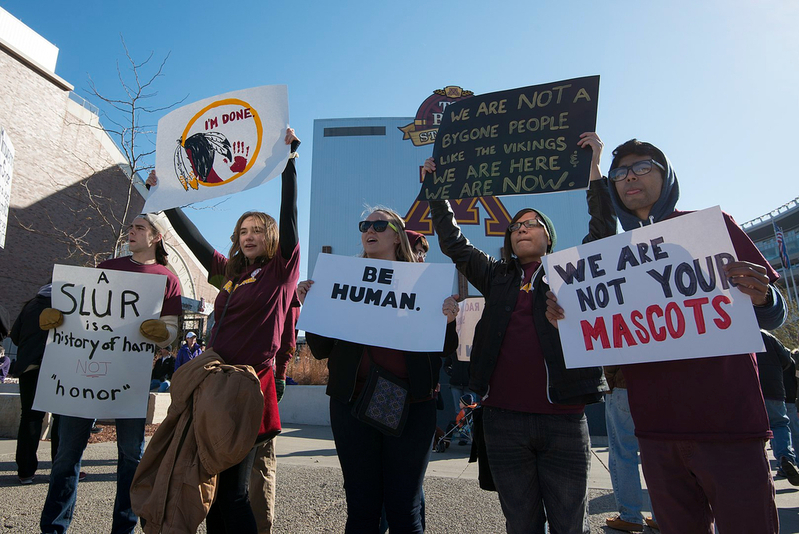
- Details
- By Darren Thompson
A state representative in Pennsylvania is seeking support for a bill that would incentivize schools to voluntarily eliminate their use of Native-themed mascots.
Pennsylvania State Rep. Christopher Rabb (D-Philadelphia) originally introduced the bill in the last session, along with state representatives Maureen Madden (D-Tobyhanna), Joseph Hohenstein (D-Philadelphia), and Ben Sanchez (D-Abington).
In a memorandum last week to other House members, Rapp asked his colleagues to co-sponsor the legislation in the upcoming session.
“Many public schools and sports teams across Pennsylvania use or refer to Indigenous culture in their mascots and logos,” Rapp wrote. “Decades of social science research have shown how derogatory mascots have a serious negative psychological and social impact on those with an Indigenous heritage.
“For far too long, Indigenous peoples have faced discrimination, disrespect, and violence. We must not remain complicit in the perpetuation of these harmful practices which encourage bullying and other forms of abuse.”
Rapp’s legislation would provide financial resources for schools to discontinue their use of Native American mascots. The funds would help offset financial costs associated with changing signage and uniforms associated with Native American heritage.
If passed, the bill would provide up to $20,000 in a one-time grant to eligible schools in the state. To receive a mascot grant, an eligible institution must submit an application to Pennsylvania’s Treasury that includes an estimated cost of discontinuing the use of an American Indian mascot.
A report published by the National Congress of American Indians in March 2022 listed that 113 schools in 45 districts continue to use Native American themed mascots in the state. Nationally, there are more than 1,900 K-12 schools that continue to use Native American themed mascots including Indians, Braves, Warriors, and Redsk!ns.
If the Pennsylvania legislation passes, it would join at least 21 states that have passed or introduced similar legislation to eliminate the use of Native themed mascots including New York, Nebraska and Colorado.
Other states have tried to appropriate funding to pay for the changes, including Wisconsin. In Wisconsin’s situation, Governor Tony Evers proposed that funding from Tribal Gaming Compacts would fund the changes for the remaining schools to eliminate their use of Native themed mascots. The proposal didn’t make it to the approved budget that was approved and enacted, however.
More Stories Like This
End of Enhanced Obamacare Subsidies Puts Tribal Health Lifeline at RiskSanta Ynez Tribal Health Clinic to Host Free Pediatric Dental Clinic
Rez Vet Earns Global Recognition for Serving Navajo Nation's Animals
Chickasaw Nation Governor Bill Anoatubby leads groundbreaking for pediatric clinic
Cherokee Nation Eyes $4 Million Transitional Housing Program

